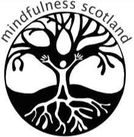A well known definition of mindfulness comes from Jon Kabat Zinn, who, around 1979, first introduced this approach for people with long term health issues attending the University of Massachusetts hospital. He says:
Mindfulness is paying attention in a particular way, on purpose , in the present moment and non-judgementally.”
Mindfulness has its roots in several contemplative traditions, as an approach to developing self awareness and insight. In essence, mindfulness is simply choosing to pay attention to our experience in the present moment with an open mind and without judgement. We begin to develop a capacity to tune into sensations and responses in our body, the nature and tone of our thoughts and to our experience of emotions.
This sounds straightforward. However, we very quickly notice that paying attention can be surprisingly challenging. We discover that our minds are constantly racing ahead, planning the next thing on the ‘to do’ list, or mulling over past events, reframing, judging, or regretting.
Training the mind to stay focussed and ‘present’ is a bit like physiotherapy for the brain. The ‘muscle’ of focus and attention can initially be a bit weak! By learning to develop our attention we can become begin to observe our own thinking habits (which can often be unhelpful and negatively influence our behaviour and reactions).
We can also develop an ability to notice our physiological responses in different situations. This ability to connect with our body and senses is a more accurate indicator of what’s going on, rather than the chatter of our thinking. We learn to do this with open minded interest and observation in a way that often allows the mind to become quieter.
Developing mindfulness (which is an innate ability and available to us all) can help us step out of automatic and habitual reactive patterns of behaviour, make more helpful choices and respond more skilfully to events.
Mindfulness is usually learned through completing an eight week programme of structured practices and guided self learning. There are two recognised approaches: M.B.C.T. (Mindfulness Based Cognitive Therapy) and M.B.S.R. (Mindfulness Based Stress Reduction). There is now an increasing body of research outlining the distinct benefits of each approach, including better management of mental and physical health issues, enhanced focus and well being in the work place, and enhanced concentration and resilience in school children.
The outcomes of well delivered secular mindfulness training are persuasive and have led to a current explosion in the numbers of research trials looking at this form of intervention. For more information on the impact of mindfulness in health, education and the workplace please follow this link to the Mindful Nation Document
You can also find some useful reading, online information and research papers in our Resources section.
This sounds straightforward. However, we very quickly notice that paying attention can be surprisingly challenging. We discover that our minds are constantly racing ahead, planning the next thing on the ‘to do’ list, or mulling over past events, reframing, judging, or regretting.
Training the mind to stay focussed and ‘present’ is a bit like physiotherapy for the brain. The ‘muscle’ of focus and attention can initially be a bit weak! By learning to develop our attention we can become begin to observe our own thinking habits (which can often be unhelpful and negatively influence our behaviour and reactions).
We can also develop an ability to notice our physiological responses in different situations. This ability to connect with our body and senses is a more accurate indicator of what’s going on, rather than the chatter of our thinking. We learn to do this with open minded interest and observation in a way that often allows the mind to become quieter.
Developing mindfulness (which is an innate ability and available to us all) can help us step out of automatic and habitual reactive patterns of behaviour, make more helpful choices and respond more skilfully to events.
Mindfulness is usually learned through completing an eight week programme of structured practices and guided self learning. There are two recognised approaches: M.B.C.T. (Mindfulness Based Cognitive Therapy) and M.B.S.R. (Mindfulness Based Stress Reduction). There is now an increasing body of research outlining the distinct benefits of each approach, including better management of mental and physical health issues, enhanced focus and well being in the work place, and enhanced concentration and resilience in school children.
The outcomes of well delivered secular mindfulness training are persuasive and have led to a current explosion in the numbers of research trials looking at this form of intervention. For more information on the impact of mindfulness in health, education and the workplace please follow this link to the Mindful Nation Document
You can also find some useful reading, online information and research papers in our Resources section.
What People Say About Mindfulness
“Mindfulness has given me a sense of sanity, peace and acceptance. I can now put all my thoughts to good use and honour the body I have. I understand that life is a sense of moments, so we must make them count!”
“Mindfulness is an application that cannot be learned in theory alone. The importance of practice is so important. The course has developed a range of practices that could not have been developed through other teaching methods”
“It has transformed my (professional) practice and given me a sense of the possibility of a fundamental psychological revolution, of giving up constant becoming and striving and living with the process of learning from moment to moment”
“This has been part of a process of change in some life style choices for me. It has helped me lose weight, relax and enjoy life more”.

